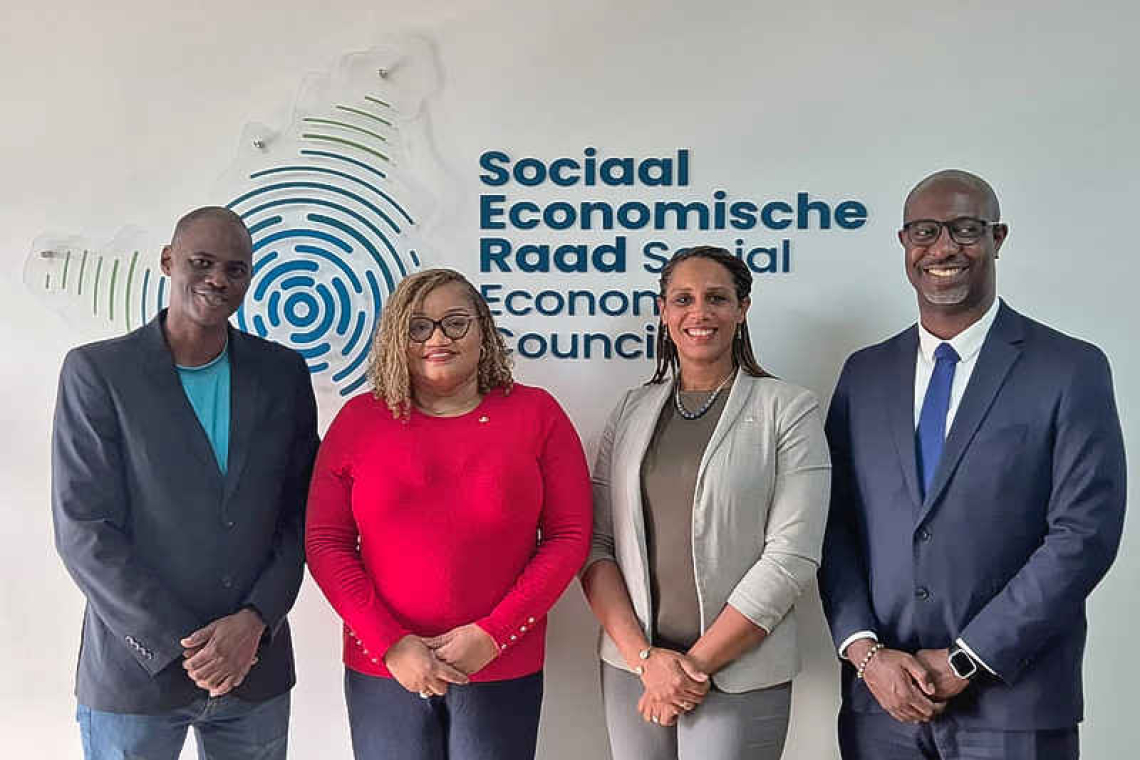From left: VSA Minister Richinel Burg, Finance Minister Marinka Gumbs, TEATT Minister Grisha Heyliger-Marten and SER chairman Harlec Doran.
PHILIPSBURG--The Social Economic Council SER submitted its advice on the proposed Visitor’s Tax to Minister of Public Health, Social Development and Labor VSA Richinel Brug on April 23.
Copies of the advice were also sent to Minister of Finance Marinka Gumbs and Minister of Tourism, Economic Affairs, Transport and Telecommunication (TEATT) Grisha Heyliger-Marten.
The advice follows the review of two national draft ordinances submitted to SER, which aim to establish a legal framework for the introduction of a Visitor’s Tax and to regulate the allocation of the generated funds. The legislation is designed to enhance the preparedness and resilience of St. Maarten’s public health and tourism sectors in response to economic disruptions, including those caused by natural disasters or pandemics.
The proposed legislation aligns with recent practices in the Caribbean part of the Dutch Kingdom. Bonaire and Aruba introduced similar visitor levies in 2022 and 2024, ranging from US $10 to $75 per person. In St. Maarten, the tax will amount to Cg. 27 or $15 for adults and Cg. 18 or $10 for minors entering the country.
SER said in a press release that it has also finalised its two remaining legislative topics. The advice on the Sustainable Affordable Access to Health Care Act (SAAHA) – formerly known as General Health Insurance – will be presented to the Board this month for further deliberation and approval. After the approval of the SAAHA advice the Board will enter deliberations on the Amendment of the Civil Code Book 7, Title 10, addressing temporary employment contracts and employment status.
SER Chairman Harlec Doran expressed satisfaction with SER’s progress, emphasising that SER continues to execute its legal mandate effectively. He further noted that the institution is receiving constructive cooperation from several ministers and key stakeholders, and “these developments only improve the effectiveness and quality of the advice of the SER.”
SER remains committed to providing independent, data-driven and objective advice on socio-economic policy and legislative proposals that impact the development of St. Maarten and all its citizens.







